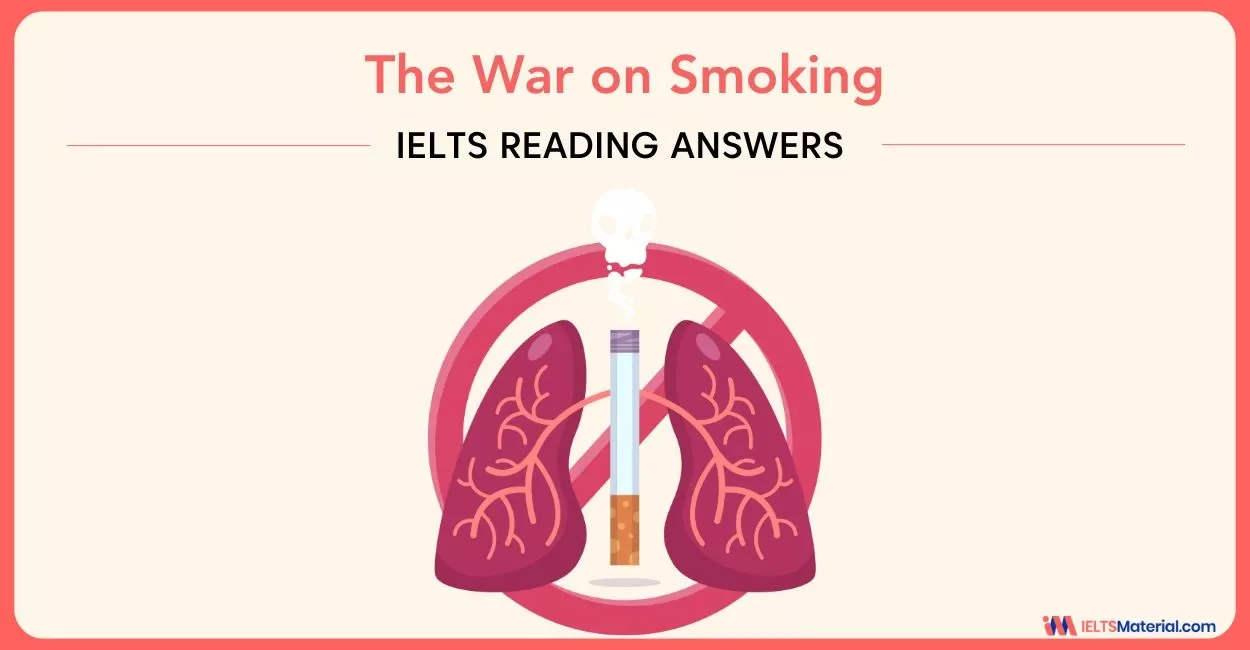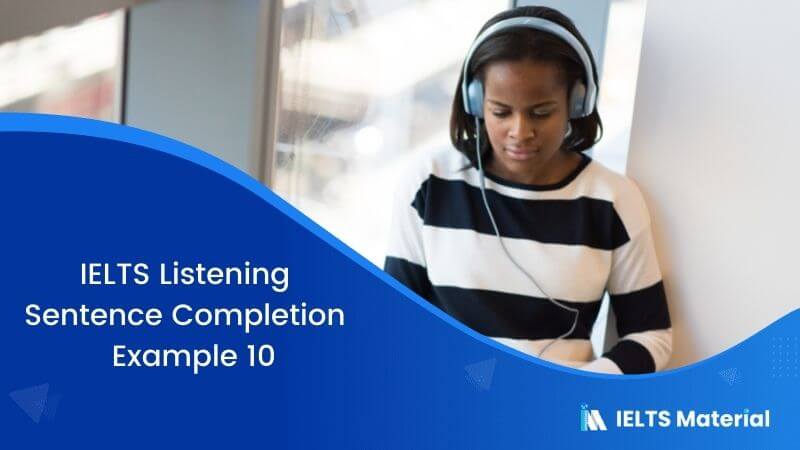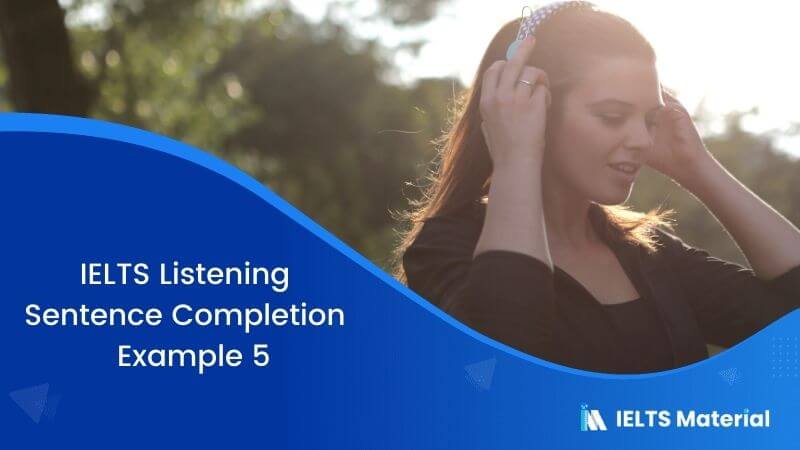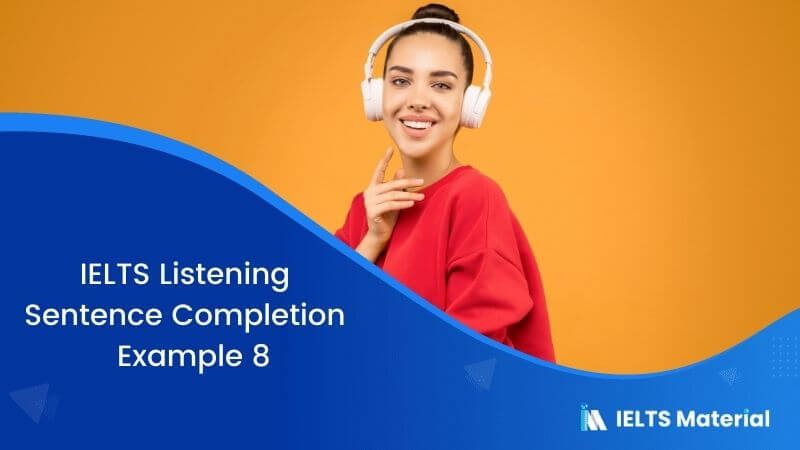IELTS Listening Sentence Completion | Example 8
Table of Contents

Limited-Time Offer : Access a FREE 10-Day IELTS Study Plan!
Transcript:
| Speaker 1: Martina, have you personally had many difficulties taking part in discussions?
Martina: Oh, yes, definitely. Especially in the very beginning of the course. In terms of speaking, I think I feel that the students when they talk in class, there is no end to the conversation. They sometimes talk continuously regardless of whether you raise a hand. However, they will usually stop and let you speak if you just interrupt someone. At the beginning, I think I was trying to adapt to this kind of environmental classroom chemistry. It was also difficult because of my language ability. At the beginning, students, especially native speaker students, well, their English is, well I don’t need to comment about their English but the speed and the fluency of their English made interaction or intervention, I mean Interruption, very difficult for students like me, like us, non-native speakers. One thing I learned to try and do is to think and try to anticipate where the discussion might go, so that when, for example, they talk about something, you know, like when they talk about, for example, how children think, I can get some ideas in my mind and then I can join in. Before, by the time I had collected all my thoughts and was ready to join in, the discussion had moved on. So basically, I think it requires you to think quickly and think ahead if you want to join in. Speaker 1: Nicole, have you done anything to try and improve and to participate in such discussions? Nicole: I think I have. For example, now I have more discussions with my classmates outside the classroom and talk about them with some of the questions raised in the seminars. If you ask tutors about your concerns as I listened to you very carefully and I pay attention to the issue in future seminars. They also try to, how do you say it in English? catch your eye and see if you are ready to make a comment. If you are, they interrupt the native speakers. And what’s the other idiom err… give you a floor. That’s it. Tutors are very good at accommodating all the people into home. But you have to let them know you want to speak. Eye contact and body language can be useful. |
Questions:
Complete the sentences using NO MORE THAN TWO WORDS.
| 1.Martina struggled to participate in ________ at the start of the term.
2. Martina points out that the students will usually stop talking and let others speak when ___________. 3. Martina felt that the _______ and _____ of the native speaker’s English made interaction or intervention difficult for the non-native speakers like her. 4. According to Martina, non-native speaker students like her need to anticipate and ________ in order to get involved in seminar discussions. 5. Nicole points out that _______ and __________ can help the tutors understand that the non-native speakers want to speak. |
Answers:
| 1.Martina struggled to participate in discussions at the start of the term.
2. Martina points out that the students will usually stop talking and let others speak when someone interrupts. 3. Martina felt that the speed and fluency of the native speaker’s English made interaction or intervention difficult for the non-native speakers like her. 4. According to Martina, non-native speaker students like her need to anticipate and think quickly in order to get involved in seminar discussions. 5. Nicole points out that eye contact and body language can help the tutors understand that the non-native speakers want to speak. |
Explanation
| For the first question, we understand from the conversation that Martina had difficulties in taking part in the discussions at the beginning of the course. So, the answer is discussions. Here, Difficulty means struggle, and taking part means participating in the discussion.
For the second question, we understand from the conversation: Martina points out that the students will continuously talk until some other student interrupts the conversation. So, the correct answer is someone interrupts. For the third question, we understand that Martina felt that the speed and the fluency of the native speaker’s English made interaction or intervention difficult for the non-native speakers like her. So, the answer is speed and fluency. For the fourth question, we understand from the conversation that according to Martina, non-native speakers like her need to think quickly and anticipate in order to get involved in the seminar discussions. So, the answer is think quickly. For the fifth question, Nicole points out to the speaker that eye contact and body language can help the tutors understand that the non-native speaker wants to speak. So, the answer is eye contact and body language. |
Also check :

Start Preparing for IELTS: Get Your 10-Day Study Plan Today!
Explore other Sentence Completion Questions

Kasturika Samanta

Nehasri Ravishenbagam

Nehasri Ravishenbagam

Prity Mallick
Recent Articles

Kasturika Samanta

Prity Mallick

Haniya Yashfeen

Kasturika Samanta




Post your Comments